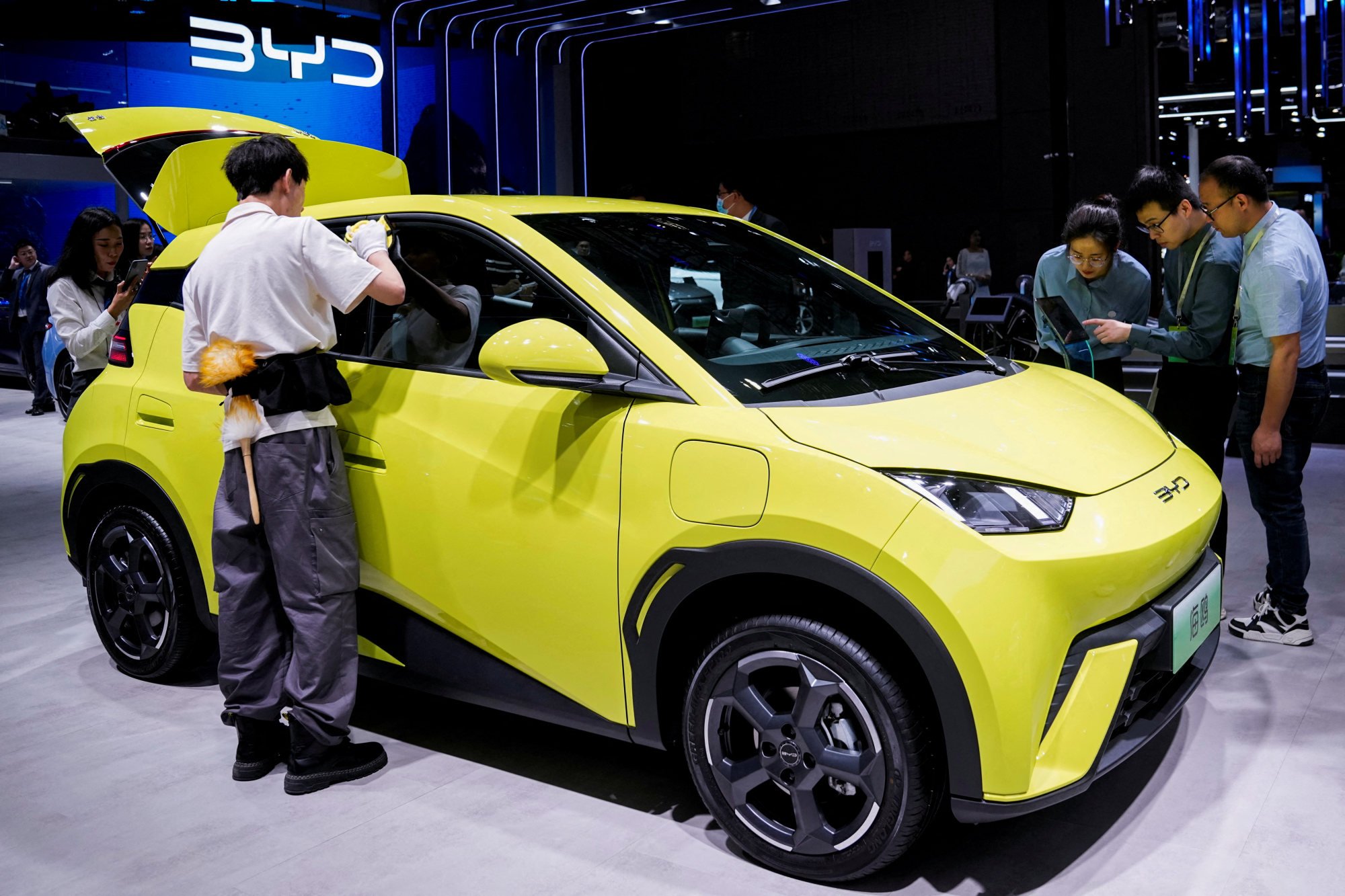
Foreign car brands from Volkswagen to Toyota to lose share in China, the world’s largest automotive market as era of gas and diesel vehicles nears end
- Volkswagen, General Motors, Honda, Toyota, BMW and Mercedes-Benz could all lose share to domestic carmakers that are undergoing rapid electrification
- Chinese carmakers better aligned with consumer preferences with BYD, the world’s largest EV maker, seen raising its market share by 4 to 5 percentage points by 2030
The report forecasts General Motors is likely to lose between 3 and 6 percentage points of market share, Honda between 2 and 4 percentage points, Toyota between 1 and 3 percentage points, and BMW and Mercedes-Benz between 0.5 and 1.5 percentage points.
“Toyota, Volkswagen and other carmakers that have been slow to embrace electric vehicles face significant loss of market share, even under the most conservative estimates,” said Bao Hang, a Greenpeace campaigner, in a statement.
“China, the world’s largest auto market, is undergoing a seismic shift.”

The carmaker sold 1.8 million pure electric and plug-in hybrid vehicles to Chinese consumers in 2022, accounting for 8 per cent of the national total.
China’s EV price war to continue after discounts fail to ignite car sales
The forecast by Greenpeace echoes early projections by consultancies like AlixPartners and those made by banks including UBS that an accelerated pace of electrification on mainland roads in the coming decade will redraw the landscape of its automotive industry.
“Carmakers that have been slow to electrify will face high levels of unused production capacity for combustion engine vehicles,” the Greenpeace report said while predicting an estimated one-third of the production capacity for conventional petrol vehicles in China would sit unused by 2030.
EV deliveries in China during the first quarter of this year made up 31 per cent of car sales, compared to 28 per cent in 2022 and 15 per cent in 2021, according to a report by Fitch Rating on Tuesday.
Domestic carmakers controlled nearly 80 per cent of the total EV market, which could see shifts in the coming quarters. The segment is currently witnessing a fierce price war but this may be nearing an end as weaker players seek to protect their margins. That could entice potential buyers back into the market as consumers have been holding back expecting further price cuts.
“Domestic players led by BYD have proved their manufacturing and design heft in the EV segment and they have been grabbing market share from the global marquees since last year,” said Eric Han, a senior manager at Suolei, an advisory firm in Shanghai. “Chinese drivers’ penchant for intelligent battery-powered vehicles is a key driving force for the EV makers’ further growth.”
International marquees controlled 80 per cent market share in China in the early 2000s as their petrol cars proved to be superior to the local brands in terms of design, quality and performance.
Chinese carmakers played catch up over the past decade as a clutch of home-grown brands including BYD, Geely, SAIC, Changan and GAC developed value-for-money petrol and electric cars.
China’s indigenous auto brands sold 11.8 million passenger cars in 2022, up 22.8 per cent year on year, according to data from the China Association of Automobile Manufacturers.
Their market share rose 5.4 percentage points to 49.9 per cent from a year earlier.
Greenpeace did not provide an estimate for the total market share of international brands but said combustion engine vehicles are forecast to account for 60 per cent of all passenger vehicle sales in China by 2030.
“The era of gas and diesel vehicles is coming to an end.”


